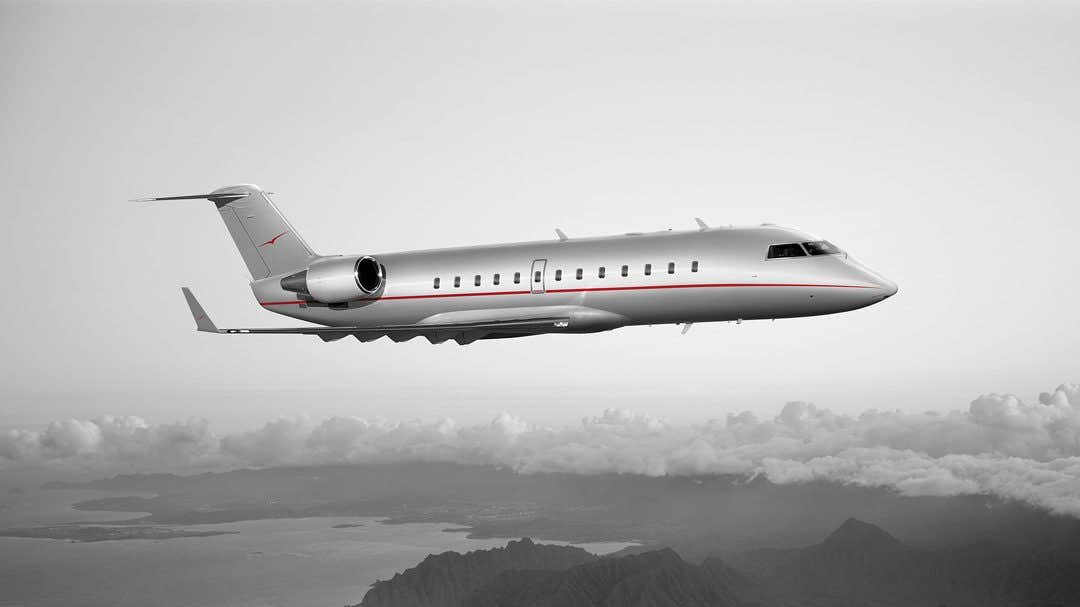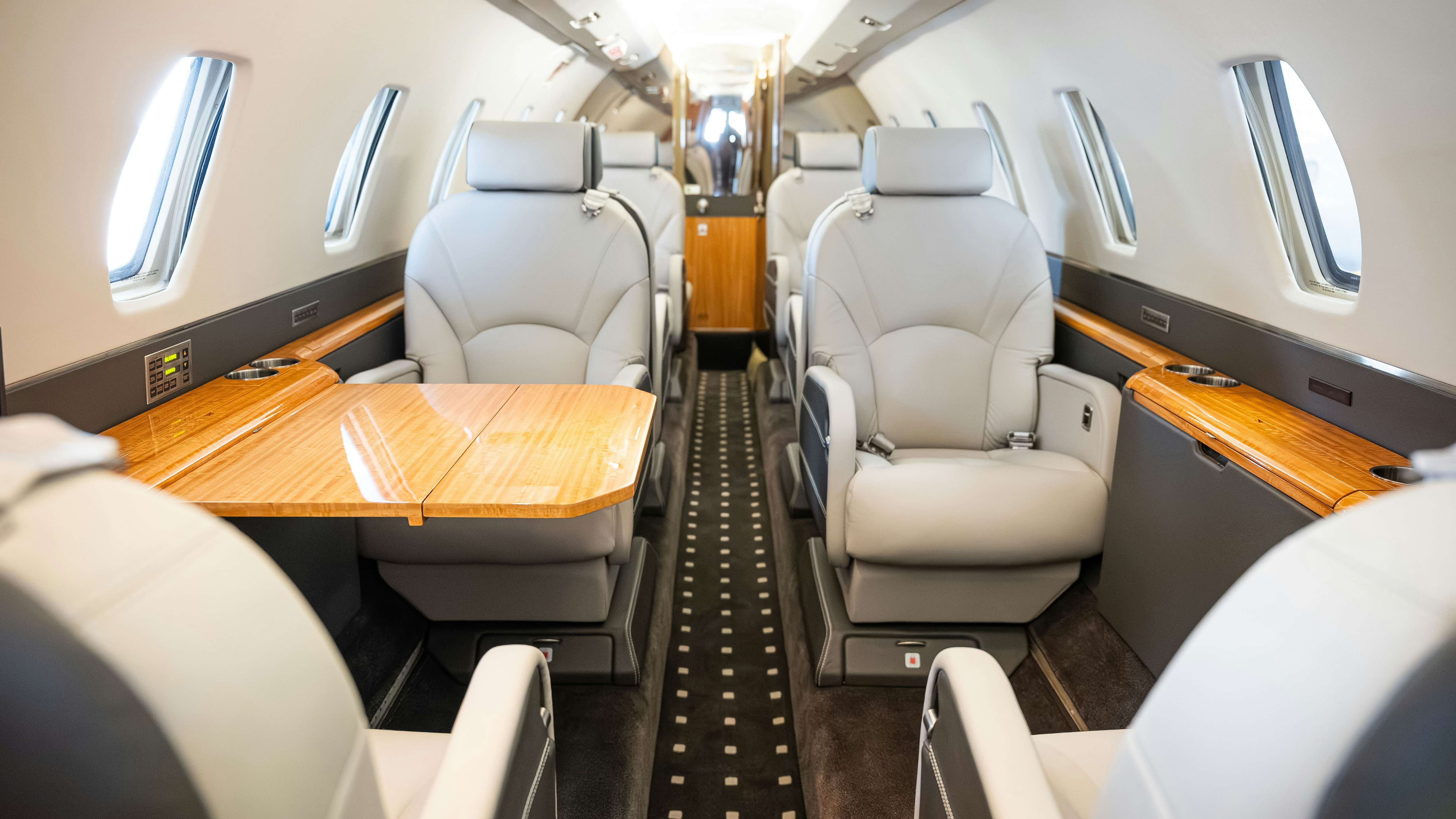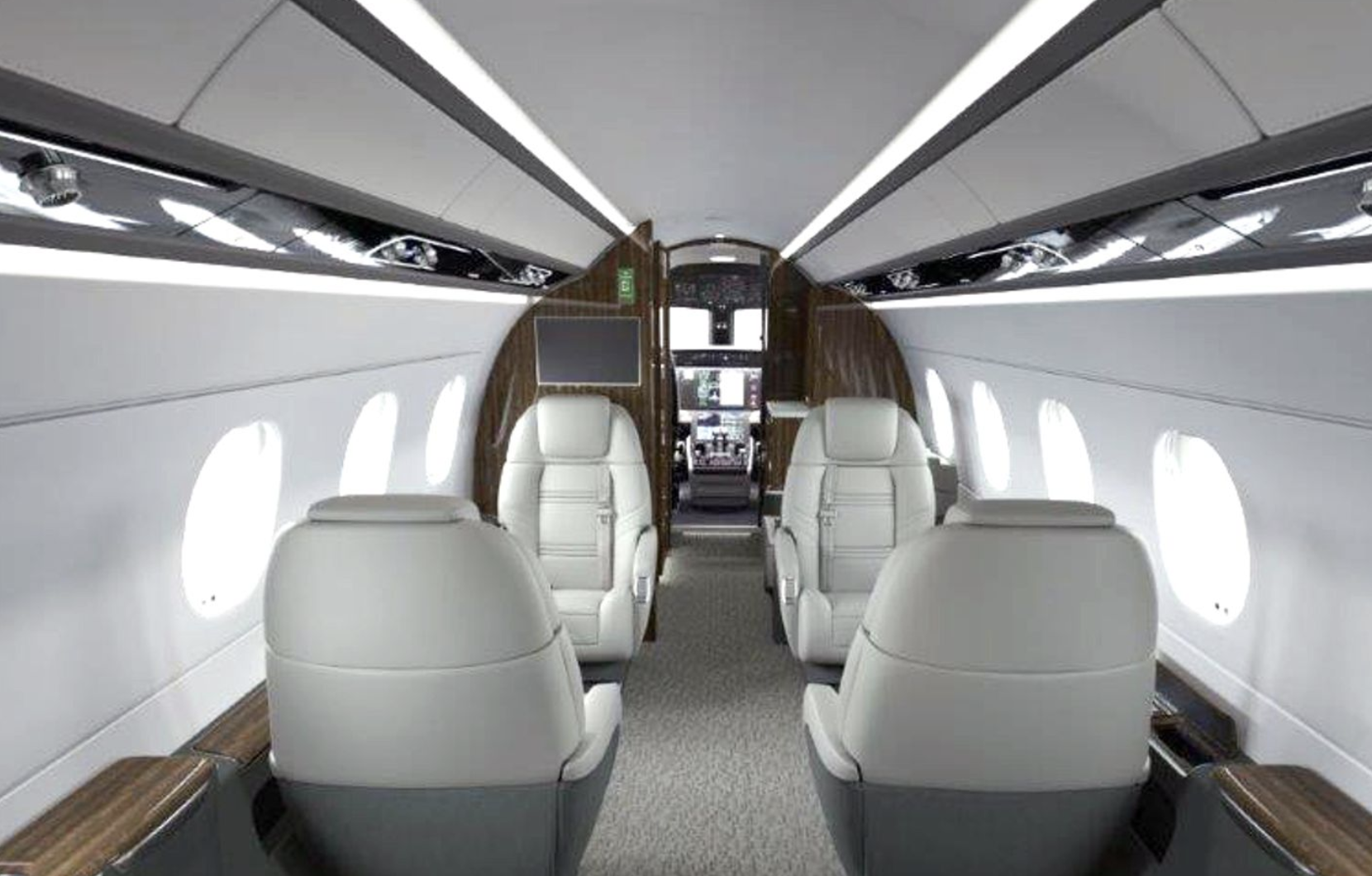Vista Global Holding Limited, the parent of VistaJet and XO, increased gross revenues by 8.5% and EBITDAR by 6.2% in 2023, according to the latest report from Fitch Ratings. It forecasts continued gains this year.
The ratings agency says Vista Global’s top line increased from $2.39 billion in 2022 to $2.59 billion last year.
Gross revenue is forecast to hit $2.82 billion in 2024.
Since 2021, Vista Global has expanded its top line by 76.5%, according to the Fitch data.
“The share of contracted Program (jet card) revenues increased to about 46% in 2023 from 39% in 2022, and we forecast it to reach 57% in 2027, driven by the company’s partial shift away from ad hoc business. We anticipate a broadly stable operating cash flow of USD 330 million to USD 430 million per year, mainly supported by revenue from use-it-or-lose-it three-year (on average) Program contracts,” Fitch writes.
VistaJet’s Program members can typically roll over 20% of unused hours in a calendar year.
In August, Vista Global said it would exit the light jet market.
It is also selling older Citation X super-midsize jets from its U.S. fleet.
Its XO brokerage marketed those fleets via on-demand charters, dynamic pricing memberships, and wholesale channels.
READ: Which private jet flight pricing model is best for you?
EBITDAR growth
EBITDAR meanwhile climbed from $395 million in 2021 to $663 million in 2022 and $704 million last year.
Fitch shows EBITDAR rising to $837 million in 2024.
In the report, Fitch notes, “We anticipate further (EBITDAR profit) growth in 2024, driven by higher aircraft utilization following the completion of its refurbishment program, an increase in contracted Program live hours, as well as a structural shift of revenue towards more profitable Program product.”
EBITDAR stands for earnings before interest, taxes, depreciation, amortization, and restructuring or rent cost.
EBITDA also increased.
Fitch shows Vista Global EBITDA growing from $262 million in 2021 to $484 million in 2022. It then dropped to $467 million last year.
Fitch forecasts Vista Global 2024 EBITDA at $601 million.
Free Cash Flow
Free Cash Flow (FCF) after acquisitions and divestitures recovered from a negative $663,882 in 2022 to a negative $163,951 last year and is forecast to be on the positive side at $50,921 this year, in line with 2021.
Fitch writes, “The company underperformed our forecast for 2023 in free cash flow (FCF) generation. This was driven mainly by extensive aircraft refurbishments exceeding our assumptions for last year, as well as working-capital outflow predominantly due to the paydown of trade payables. We expect maintenance capex to normalize at around USD160 million per year, as the refurbishment cycle has been completed. Our forecasts do not assume further growth in fleet size, while the working capital trend should normalize as well.”
EBITDAR leverage this year is expected to drop to 5.5, down from 6.4, 6.6, and 5.4 sequentially over the past three years.
Fitch notes, “We expect that improved profitability, and the normalization of maintenance capex and working-capital movements, will support positive FCF from 2024 and, consequently, gradual deleveraging. We forecast EBITDAR leverage to decrease to 5.5x in 2024 and remain within our rating sensitivities of 4.5x-5.5x in 2024-2027.”
B+ rating affirmed
Fitch affirmed its B+/Stable rating:
‘Vista’s ‘B+’ rating reflects its niche operations, concentrated ownership with key-man risk, some volatility embedded in on-demand services and high EBITDAR leverage, which Fitch Ratings expects to decrease to the level of negative sensitivity of 5.5x in 2024 and further in 2025-2027.
Rating strengths are its global market position, albeit in a highly fragmented market, diversified operations by geography and customer, and a sizeable and growing share of contracted revenue.
Negative FCF in 2023: The company underperformed our forecast for 2023 in free cash flow (FCF) generation. This was driven mainly by extensive aircraft refurbishments exceeding our assumptions for last year, as well as working-capital outflow predominantly due to the paydown of trade payables. We expect maintenance capex to normalize at around USD160 million per year, as the refurbishment cycle has been completed.
Our forecasts do not assume further growth in fleet size, while the working capital trend should normalize as well.
Sound Profitability: Vista’s EBITDAR in 2023 stood at about USD704 million. This is below our previous expectations. However, it is still an increase from USD663 million in 2022.
We anticipate further growth in 2024, driven by higher aircraft utilization following the completion of its refurbishment program, an increase in contracted ‘Program’ live hours, as well as a structural shift of revenue towards more profitable Program product.’
According to Fitch, a B rating “indicates that material default risk is present, but a limited margin of safety remains. Financial commitments are currently being met; however, capacity for continued payment is vulnerable to deterioration in the business and economic environment.”
Vista Global liquidity
Writing about liquidity and debt structure, Fitch says:
‘Vista had short-term financial debt obligations of around 2.0x its cash balance at end-2Q24, excluding leases. In 2024, we expect the company to generate about USD160 million of FCF (after lease payments), which, together with the cash on its balance sheet, would be sufficient for scheduled debt repayments. However, we expect Vista to continue to refinance any balloon maturities in the near term. Vista also has about USD17 million of deferred consideration payable in 2H24 (USD103.3 million was already paid in 2024) for past acquisitions, in addition to debt maturities…A decrease in renewal rate by its ‘Program’ customers, or a net decline in ‘Program’hours sold, could result in net-cash outflow related to the unwinding of these contract liabilities through the year.’
Fitch reports Vista started 2024 with $175 million in cash and Total Available Liquidity of $669 million.
The rating agency also noted, “Private aviation companies tend to outperform the market during severe disruptions to commercial air traffic, given their customer base (corporates and high-net-worth individuals) is more resilient to economic downturns. Vista also outperformed the private jet market in 2023, growing in all its operating regions.”
It added, “The aircraft charter market is highly fragmented with strong competition, despite Vista Global’s status as a leading operator. The company’s market share is only about 5% of the USD65 billion global private aviation market.”
On cash flow, Fitch wrote, “Contracted revenue accounts (jet cards) for nearly half of the group revenue, providing cash flow visibility stronger than other commercial airlines.”
Regarding the leverage profile, Fitch noted, “We expect capex to normalize from 2024 and leases to amortize. We expect deleveraging on the back of improving FCF.”
Regarding refinancing risks, Fitch said, “The company has USD170m-200m of debt repayments due each year for the next two years, excluding leases. It has the USD 500m bond repayment in 2027. Availability of aircraft financing is good, and Vista should be able to repay most of its debt through cash generation.”
READ: What happens to your jet card and private jet membership deposits?
Vista ‘outperformed the market’
Overall, Fitch labeled Vista’s competitive performance as solid.
It said, “In 2023, Vista outperformed the market in flight hours growth, with an increase of 18%, compared with a 4% decrease for the global market. This was partly due to some of its off-fleet (marketplace) business coming on-fleet, in line with the company’s core strategy. Market flight activity in key regions weakened, but Vista’s global coverage provided some resilience relative to its peers, and the company recorded double-digit growth in on-fleet flight hours in all regions.”
It also pointed to the selling point of VistaJet’s Program, noting, “Within the private aviation sector, compared with providers with fractional or full asset ownership, Vista offers both lower all-in cost and higher flexibility as well as no asset residual risk to customers.”
Through the first six months of 2024, Vista Global operators moved from fourth to third place behind NetJets and Flexjet on our list of North America’s largest charter/fractional operators.
The ARGUS data showed 10.3% year-over-year growth.
Vista Global financial scrutiny
Vista’s finances have been scrutinized since a May 2023 Financial Times report highlighted the privately held flight provider’s net losses and growing debt.
Founder and Chairman Thomas Flohr defended his company’s finances on CNBC, attributing the rising debt to acquisitions and new aircraft.
The Fitch Ratings reports do not publish net loss or profit results.
Since 2018, Vista has bought operators XOJet, Red Wing Aviation, Talon Air, Jet Edge, and Air Hamburg, and brokers JetSmarter, Apollo Jets, and Camber.
While acknowledging a cash deficit to deferred revenue (payments for future jet card flights), Flohr claimed it only takes the low 20-cent per dollar range to fulfill flights when a custom books.
Vista later filed suit against AirX, a smaller charter operator, and its Chairman, John Matthews.
It alleged the defendants obtained confidential financials and court-protected information about the company.
The lawsuit accuses AirX employees and Matthews of disseminating the information to the media and other stakeholders.
In the lawsuit, Vista said it lost customers and faced revised payment terms from trade vendors.
AirX denied all claims.
According to Bloomberg, Flohr told investors earlier this year that his 86% stake in the business “can be accessed to bolster liquidity.”
Vista did not respond to a request for comments about the Fitch report.
You can read the full Fitch Ratings report here.
(Editor’s note: An earlier version stated EBITDA and EBITDAR numbers in thousands instead of millions of dollars.)












